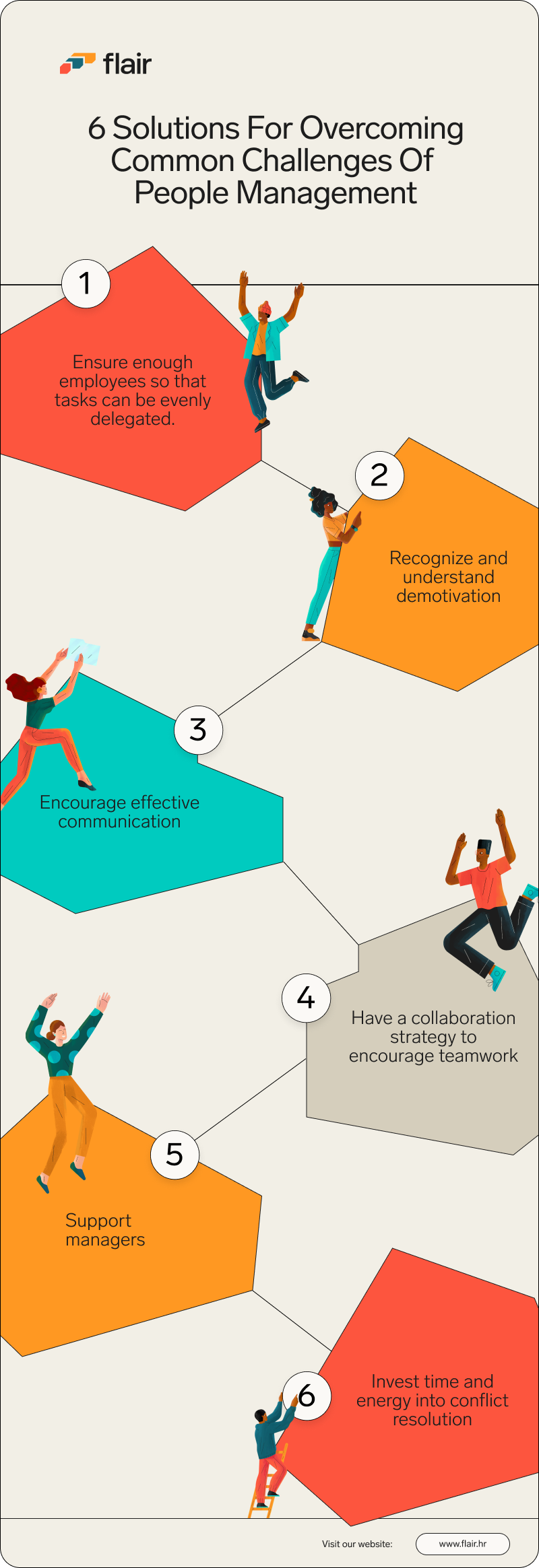Origins to Innovation: Cloud Computing's Impact on HR
Do you know why it's called cloud computing and are you aware of the benefits to HR?
- 06 Jun 2024
- Max 11 min read
The Number One HR Solution on Salesforce
Employees are the most important asset of any business. Their performance has a massive impact on the overall success and profitability of a company. But the success of your company is rooted in more than just having a team with impressive skills – it requires creativity, strategic thinking, and leadership from the top down.
Investing in the training and development of your employees can allow staff to reach their full potential and certainly help boost your business.
But being an excellent people manager is invaluable. It involves creating a supportive and encouraging workplace environment, whereby employees feel both appreciated and motivated to excel.
Let’s take a look at what people management is all about and how it can benefits your business.
People management is closely related to human resource management. It's about organizing employees to optimize business performance. Good people management can make or break a business. It's essential to create an atmosphere that encourages productivity. But it is also equally important to ensure you have the right individuals on hand to reach your goals.
Key components of people management:
Although the significance of people management may appear obvious, it is important to understand why. Rather than simply summarizing the advantages of effective people management as "improving your business," it is beneficial to comprehend the deeper impact that people management skills can have.
Providing proper training to your employees and nurturing their career development will lead to a much more positive work environment that encourages your staff to strive for success.
By maintaining a positive work culture that makes employee well-being a priority, you will be able to reduce burnout, improve employee retention, and boost job satisfaction as a result of improved morale.
Plus, your staff will be more likely to work hard and go the extra mile for your company if they enjoy their job.
By establishing a culture that promotes good people management strategies, you can help teams communicate and understand their roles in the organization. Collaboration and coordination improve the efficiency and productivity of a business. When employees collaborate, it leads to higher job satisfaction and better retention rates.
By promoting communication and establishing trust among teams, good people managers facilitate collaboration and overcome potential divisions between different departments. This is particularly crucial in situations like a pandemic when communication is restricted to online channels, making coordination challenging without a mediator.
Having great people management skills can make it easier to manage conflicts among staff, clients, and other businesses. Employees in leadership positions play an important role in conflict resolution because they're the people others look towards for assistance and advice. Mediating conflicts between team members can lead to faster resolution and establish a more friendly work environment. It can also help you gain respect from your staff and improve relationships between team members.
Excellent people management skills are the foundation of a positive and long-lasting company culture. This culture defines how future team members integrate with your team. People management strategies can evolve over time but should typically be based on your people-first company culture. This leads to a simpler decision-making process when your team is presented with a problematic scenario. It also nurtures staff for future generations who will embrace your company culture and continue to evolve it.
A team that works well together has a competitive advantage over businesses that don't focus on employee engagement. Effective people management greatly impacts your bottom line and ultimately leads to a more profitable and successful business.
Conversely, poor people management can be disastrous for a company. In fact, a study by DDI reveals that 57 % of employees quit because of their boss.
This is not an exhaustive list of every benefit that one can expect from great people management, but it provides a good example of what's possible if you focus on improving your leadership skills and empowering your employees.

Now that we understand some of the biggest benefits of effective people management skills, how do we go about helping our employees do their best work? People management is all about soft skills. This refers to skills that can fit into any workplace and generally include things related to your attitude, motivation, manners, personality, and flexibility.
Here are some of the essential soft skills that will help your employees do their best:
Empowering employees means helping them develop new skills to be more productive in the workplace. However, it's not as simple as just assigning them an online course and expecting good results. If you want to support your team to do their best work, you should consider:
Empowering your employees is about giving them more options and resources to achieve their goals. Encouraging professional growth is key to being a great manager, and ultimately leads to happier employees. And we all know that happier employees perform better.
Good managers tend to be high in emotional intelligence and are empathetic. Emotionally intelligent leaders are skilled in understanding and managing their own emotions, as well as those of their team members.
In any workplace, employees may encounter disagreements and debates with other team members, managers, and even clients. Developing conflict resolution skills is an effective way to address interpersonal challenges and establish a more comfortable work environment.
When a leader is able to mediate conflicts and resolve them efficiently, it allows the business to resume operations as soon as possible, which is a huge benefit. Additionally, it clears up any misconceptions between team members and helps everyone reach a better understanding.
Mediating conflicts can also help discover the root cause of the disruption, allowing you to overcome similar problems in the future. It can also encourage your team to avoid such issues altogether. In many cases, it can even teach your staff how to solve conflicts on their own and improve their overall communication skills, resulting in a more efficient and productive team.
Flexibility is important because it allows employees to work in the way they prefer. This leads to a more productive and effective business, as employees are more comfortable with their work environment. It also shows that you trust your employees to make the best decisions for the business. If you trust your team members and give them the freedom to be flexible, it can garner respect for you as a leader and establish a flexible company culture that encourages staff to build on the foundation you’ve set.
One example of flexibility is offering staff the option to work in the way they see fit. For instance, if you encourage your team to solve a task in a specific way but one member has a suggestion, it’s worth listening to them and allowing them to explain their ideas. Rather than micromanaging, give your team members the opportunity to try out their ideas. It's possible that their approach could be more efficient than the original method! And even if it fails, it will surely produce valuable insights and data that can help optimize processes in the future. Granting your team more agency and control over their work can also increase engagement among individual contributors, who are often the least engaged employees
Communication is the foundation of good people management skills. It enables many positive benefits such as great teamwork, effective problem-solving, and transparency that fosters trust and community in the workplace. Yet it is also the No. 1 skill employees feel their managers lack.
Communication helps staff feel like their opinions matter. Giving your team a louder voice encourages them to communicate their ideas and concerns with senior staff.
Effective communication involves using simple language to convey your message. Avoid complicated jargon and ensure that team members have simple and effective ways to communicate with each other. For example, you might implement a new messaging system if your team finds it difficult to contact you. You also need to establish a company culture that encourages team members to directly contact senior staff, rather than creating barriers that hinder communication flow. To improve communication, it may be necessary to change your management style. However, being a great manager means being flexible and willing to change!

Developing excellent people management skills is not an easy task, and there will always be challenges to overcome. Those challenges will vary depending on your leadership style but most obstacles can be easily addressed if you learn to identify them before they hinder you.
Here are some tips for overcoming common problems in people management:
There are many other challenges of people management, but these are some of the biggest ones to look out for. All of these challenges can be overcome by empowering your staff and encouraging effective communication. Through active listening and conflict resolution, you can establish a people-first company culture that promotes teamwork and motivates your staff to go the extra mile.

Performance management is the process of monitoring and managing employees using various strategies. This can be achieved through the use of a performance management system or regular employee performance reviews. The main aim of a performance management system is to help an organization achieve its goals and ambitions while aligning them with individual employee goals. This can greatly improve employee motivation and boost team morale when done correctly.
Another benefit of performance management is that it encourages employees to work harder and achieve their career goals. By recognizing the efforts of our team, we can identify which employees are thriving in the workplace and who might need extra assistance. This ultimately leads to a more productive business and the development of employee-centric growth strategies that empower the business with well-trained, motivated, and loyal team members.
The importance of excellent people management skills cannot be overstated. Since staff are at the core of any business, it makes sense that one of the biggest factors defining your success is how you manage your team. Great people management requires you to be proactive. You need to understand the needs of your team and empathize with individual staff when they are having trouble.
Nurturing great employees means cultivating great people management skills. flair is a multi-purpose tool that can help you level up your people management strategy. Use flair to simplify onboarding and absence processes, improve communication, drive employee engagement, and easily manage performance reviews.
Find out what flair can do for you and book a free demo today!
Join flair’s newsletter to receive the latest tips & trends in the HR world.

